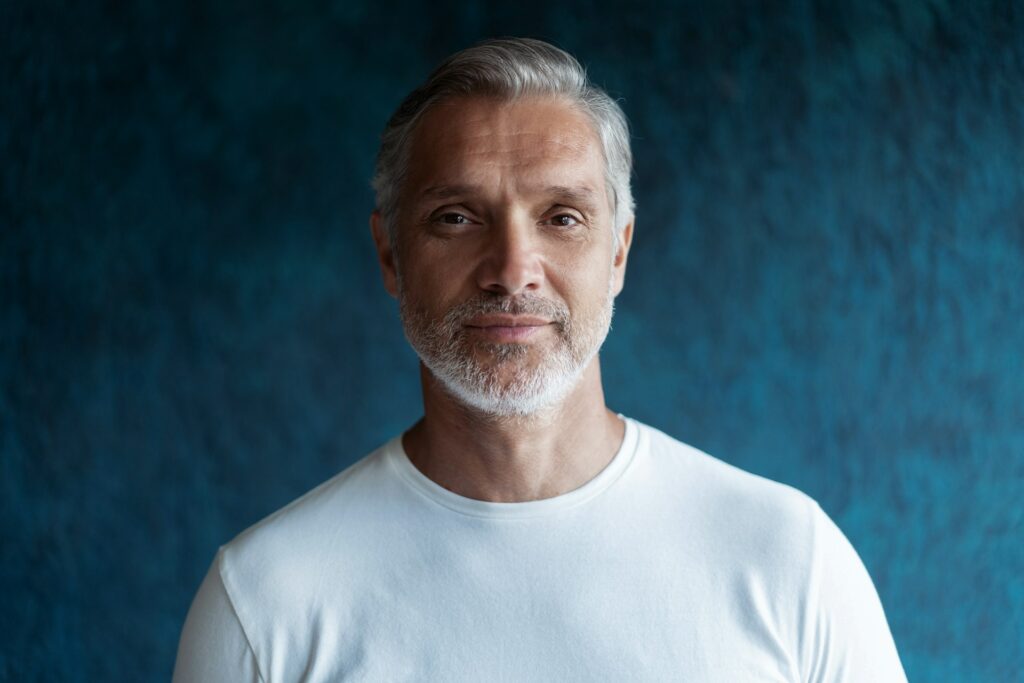Growth sounds inspiring until you’re in the thick of it—then it feels like confusion, self-doubt, grief, and discomfort that no one really warned you about.

The truth is, becoming a stronger, wiser, or more aligned version of yourself usually involves letting go of what used to feel familiar. Perhaps unsurprisingly, that process can feel messy. If you’re in the middle of change and wondering why it’s so hard, you’re not broken—you’re just growing. Here’s why it feels the way it does, and how to keep moving through it without giving up on yourself.
1. You’re shedding old identities that once kept you safe.

When you start growing, certain roles, labels, or patterns you once relied on no longer fit. Maybe you were always the quiet one, the overachiever, the fixer, the one who kept the peace. Letting go of those familiar parts of yourself—even if they were limiting—is unsettling. That identity change can feel like losing a version of yourself. However, discomfort here isn’t danger—it’s your brain recalibrating. You’re not becoming no one; you’re becoming someone more honest.
2. Your nervous system doesn’t like unfamiliar territory.

Even positive change can feel threatening if it’s unfamiliar. Your nervous system is wired to prefer predictable discomfort over unknown possibility. That’s why healthy boundaries, rest, or confidence might feel “wrong” at first. That doesn’t mean the new version of you is unsafe—it just means your body hasn’t caught up yet. With repetition, the unfamiliar becomes normal. Be patient with the lag between who you’re becoming and what your body is used to.
3. You’re questioning things you used to accept.

Growth often begins with seeing something you can’t unsee—realising that a relationship isn’t working, a belief isn’t true, or a habit isn’t serving you. That realisation can shake your entire foundation. Questioning doesn’t mean you’ve lost your way. It means you’ve started thinking for yourself. Keep asking the hard questions. You don’t have to land on answers right away—just let the questions stretch you.
4. You’re outgrowing spaces or people, and that’s painful.

Sometimes growth means realising that certain environments, friendships, or dynamics no longer support who you’re becoming. That doesn’t mean anyone’s bad; it just means you’re no longer in sync. Emotional shedding is hard. It comes with grief and guilt. But it’s also necessary. You’re allowed to make space for people who meet you where you are now, not just where you used to be.
5. You’re learning how to sit with discomfort instead of escaping it.

Growth teaches you to stop running from the hard stuff. Instead of numbing, avoiding, or overthinking, you start learning how to feel, and that’s no small thing. It’s raw. It’s real. It’s often overwhelming. However, this emotional honesty is a sign of strength. You’re building capacity. Every time you sit with discomfort instead of stuffing it down, you’re expanding your ability to handle life without shutting down.
6. You’re unlearning beliefs that were passed down, not chosen.

Maybe you were taught that rest is lazy, that love is earned, or that your worth comes from performance. Growth asks you to question those inherited beliefs, and replace them with something truer. This process takes time and often comes with resistance. Be gentle with yourself. You’re not failing—you’re detangling from years of programming. That’s powerful work, even when it’s invisible.
7. You’re doing things before you feel “ready.”

Growth usually doesn’t wait for confidence. It shows up with trembling hands and a racing heart. You start the thing, say the truth, apply anyway, walk away, even when you still doubt yourself. This discomfort is the edge of expansion. It’s not proof that you’re not ready—it’s proof that you’re already stretching into new capacity. Courage comes first. Confidence catches up later.
8. You’re building boundaries and people don’t always like it.

One of the hardest parts of growth is realising that taking care of yourself doesn’t always look nice to other people. When you stop people-pleasing or start saying no, some people will be confused or upset. This is where many people freeze. But staying small for anyone else’s comfort won’t serve you—or them—long term. Trust that your boundaries are not rejection. They’re clarity. The right people will adjust.
9. You’re no longer chasing quick fixes.

Growth asks you to choose the long path—the deeper healing over the instant high, the real conversation over surface comfort. And that means it’s slower, harder, and often less immediately rewarding. However, it lasts. Real change doesn’t come with fireworks—it comes with quiet, repeated steps. Keep showing up, even when it’s boring or unclear. That’s where transformation actually happens.
10. You’re feeling everything more deeply.

As you grow, you become more emotionally awake. You might cry more, laugh harder, or feel a deeper sensitivity to things you used to brush off. This isn’t regression, it’s openness. Let it be a sign that your heart is coming online. That you’re no longer numbing out or hiding behind detachment. Feeling more isn’t weakness. It’s evidence that you’re becoming more fully alive.
11. You’re realising growth doesn’t mean constant upward motion.

It’s not a straight line. Some days you’ll feel strong and clear. Other days, you’ll question everything. Growth includes backslides, confusion, and messy middle stages where nothing makes sense. That doesn’t mean you’re doing it wrong. It means you’re in it. Keep going. Progress isn’t about feeling amazing all the time—it’s about not giving up when you don’t.
12. You’re starting to see glimpses of your future self, and you like them.

In the middle of the discomfort, there are moments of clarity. A decision you’re proud of. A boundary that felt empowering. A calm reaction where you would’ve panicked before. These are signs of growth landing. Hold onto those moments. They’re proof you’re not stuck—you’re evolving. And every time you choose something aligned over something familiar, you’re stepping closer to the version of you you’ve been building all along.


